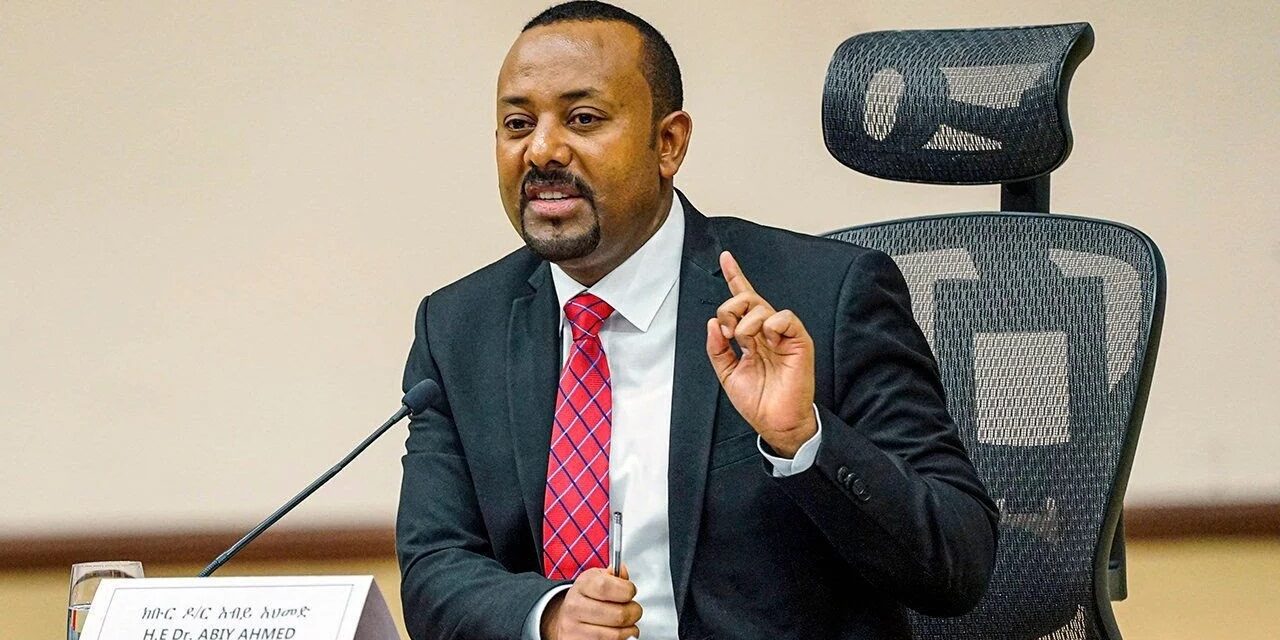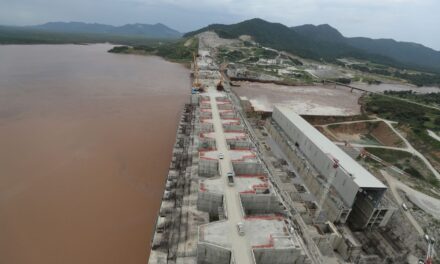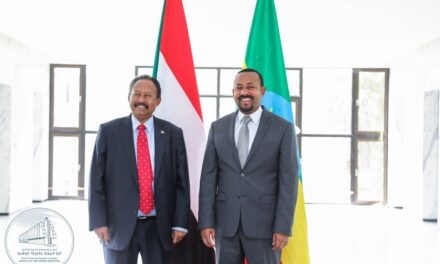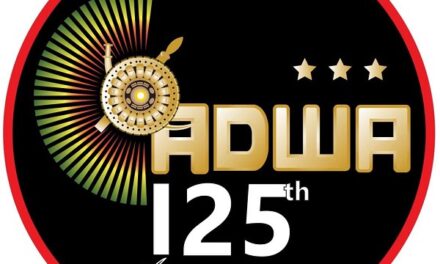By: Yohannes Gedamu (Ph.D.)
PM Abiy Ahmed’s rise to political power in Ethiopia was followed by higher expectations for political reforms. He delivered in most of these promises.
Over last two years, however, the country also faced greater instability due to ethnic violence caused by conflict entrepreneurs. Among others, massacres and killings of individuals due to their identity were common.
Internal displacements of citizens worsened. Ethiopians, who were already in fear of moving around within the country due increasing ethnic polarization, seemed helpless.
PM Abiy and officials within the incumbent Prosperity Party had also admitted the need to do a better job to protect citizensacross the country.
Although the administration’s acknowledgment of waning peace is quite a change in its own, Ethiopians have also been cognizant of the fact that what Abiy’sadministration replaced in 2018 was a TPLF led EPRDF coalition.
And that coalition was known for its violence making, gross violations of human rights, and imprisonment ofjournalists, civil rights activists and the political opposition.
TPLF led EPRDF’s bad legacy
Consequently, for most Ethiopians with the exception of radical ethno-nationalists, it was already clear that what the Abiy led administration inherited was a deep state that remained very challenging to reform in a short period of time.
As a result, with reforming the deep Ethiopian state, which was controlled by TPLF loyalists too challenging, guaranteeing peace and security had also become daunting task for Abiy led government. Nonetheless, it does not also mean that Abiy did not give it a shot. His administration tried all it could.
In fact, he attempted to appease radical ethnic nationalists so much that even his avid supporters questioned his patience as indecisiveness.
Unfortunately for Abiy and the country, his efforts to appease to these groups and avoid the use of force hadbackfired. Here is why.
After he came to power, he invited all rebel groups in exile, particularly based in Eritrea, to return home. Not only were they allowed to return. They did so still fully armed.
Pm Abiy’s hope that these groups would now enter the political space he expanded and join the peaceful struggle towards democratization however, was short lived. Indeed, the Oromo Liberation Army, which was one of the returned groups refused to disarm.
OLA has been causing one mayhem after another in Western and South Western Ethiopia.
Abiy’s another backfired attempt towards calming Ethiopia was the patience that he showed towards TPLF, a group that has always undermined his federal government and the army he leads as the country’s commander in chief. Regardless, all his attempts to solve political disagreements have failed time and again due to the other side (TPLF led ethnic-nationalists) detracting all those efforts.
Federal government’s attempts
Among others, elderly Ethiopians’ attempt towards a political dialogue with TPLF was unrewarding. Ethiopia’s Islamic and orthodox clergy along with other faiths have also tried to contribute to the peaceful resolution of disagreements, yet with no success.
In addition, the peace and reconciliation commission that was established by the House of Representatives, had also travelled to Mekelle, Tigray region’s capital. Unfortunately, its delegates were unceremoniously ordered to return to Addis Ababa. The list of attempts are too exhaustive and all declined by TPLF.
Instead of heeding calls for peace and reconciliation, TPLF, a Tigrayan ethno-nationalist group that still remains a liberation front, coalesced with other ethno-nationalist groups mainly, radical nationalist Oromo groups
TPLF also continued to undermine the constitution by holding its own elections and declared that Pm Abiy led federal government illegitimate. Finally, it attacked an army that had protected Tigray for two decades, which it admitted and put the country in a very difficult position to defend its existence.
These chain of events were why Abiy currently enjoys overwhelming support in ENDF’s counter offensive against the TPLF.
Bad ethno-nationalist narratives
Among the many commonalities of the ethno-nationalist camp is the fact that they consider Abiy Ahmed, who is an Oromo, a neftegna, an Amharic term to mean ‘someone with a gun’), which the camp uses when referring to the Amhara.
But why ethno-nationalists in Ethiopia despise the Amhara?
Ethno-nationalists wrongly believe that past Amhara led regimes had marginalized them. The truth is that the Amhara had not benefited from any past socio-economic reality other than the historic fact that their forefathers played a major role in the country’s modernization.
Amharas also led and joined all Ethiopians’ successful quest to defeat European colonial ambitions and proudly maintained country’s independence.
Sadly, for narrow movements to work, the ethno-nationalist camp had to create an enemy that is real or imagined. In that regard, these groups imagined poor Amhara as an enemy of political equality in Ethiopia. By doing so, they tainted the beauty of a highly tolerant Ethiopian society with impressive level of social capital.
Sadly, due to such anti-Amhara campaigns, there is no guarantee that recent shocking attacks against ethnic Amharas would not be repeated; as gruesome massacres in Guliso, Guraferda, Mai Kadra and Benishangul in just recent weeks alone serve a shocking reminder.
For ethno-nationalists, utilizing rhetoric of an imagined enemy worked to incite ethnic violence. Yet, for these groups, it was even politically appealing to use an ethnic slur to label a prime minister who aspires to restore trust amongst Ethiopians and address critical challenges that are the result of a significant level of ethnic polarization.
The fact that Ethiopia’s premier is an Oromo would not even spare him from a label that the heinous group uses for ‘others’, notably for the Amhara.
That is also exactly why extreme Oromo nationalists resort to attacking the legacies of great Oromo military generals, artists, intellectuals, religious leaders that are loved icons to all Ethiopians by calling them subservient to the interest of an Amhara led empire.
Yet again, that’s unfortunate since Ethiopia was actually never an empire. As such, the radical ethno-nationalist camp always come up with highly coordinated but baseless stories of past marginalization to justify how they despise Amharas. For example, the hate statue known as Anole symbolizes that exact anti-Amhara rhetoric.
Unsurprisingly, just after the current conflict in Tigray was started, one of TPLF’s official statements also told a similarstory, which is new to Ethiopians, but still good enough to incite an anti-Amhara hate amongst Tigrayans. Again, the story tells Menelik II’s army had once cut genitals of ‘all Tigrayan boys” so that no Tigrayan will be born after that.
For ethno-nationalists, no story they make actually embarrasses them as long as it is acceptable to their narrow political goals.
The recent ethno-nationalist narrative that portrays PM Abiy as anti-federalism working to restore the old Ethiopian unitary government structure is also laughable.
True that the current federal arrangement is a bad institutional design by a TPLF led EPRDF and remains responsible for many problems devastating the country. But the truth is that Abiy Ahmed supports federalism as a better institutional design for the country.
Nonetheless, the culture in the ethno-nationalist camp seems that anyone working to calm ethnic-polarization and preach national-unity shall be labeled as anti-federalism.
Calls for peace rebuilding trust needed
Today, not everything in Ethiopia is rosy. At this point, therefore, sanity and togetherness should prevail. As Ethiopians hope for peaceful days ahead, everyone should play a constructive role.
Thus, it is also high time that the ethno-nationalist camp stop the divisive rhetoric and replace it with calls for dialogue, forward looking reconciliation, and peaceful co-existence.
Moreover, such groups shall join others to wait for the re-scheduled national election in mid-2021 as an opportunity to finally make a stride towards a democratic Ethiopia.
(The views expressed in this post do not necessarily represent the views by East-Africanist. The views are solely that of the author.)





